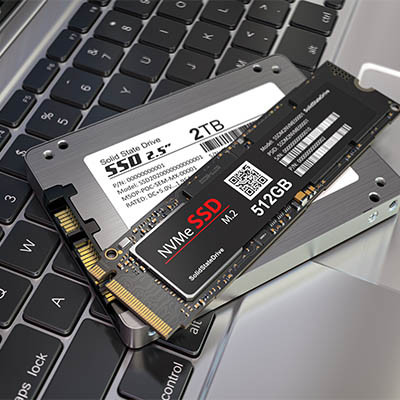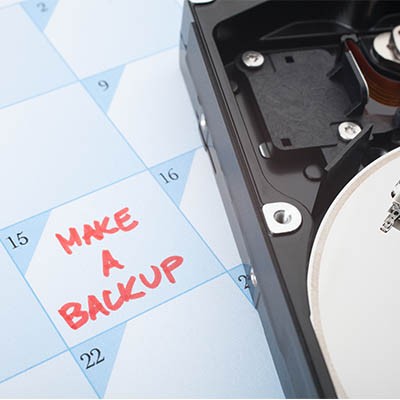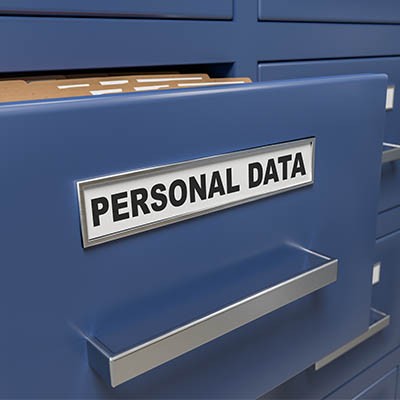When you are looking to buy a new computer, you need to consider the options available for data storage. This is especially true if you are looking to replace a computer used by several users. The more people that use a computer the more files will likely be stored, after all. Today, however, there is another determination to be made: how fast is your storage device?
Computerware Blog
Individuals are increasingly understanding the value of their data, and that is a good thing. Unfortunately, a lot of small and medium-sized businesses are operating today without any type of data backup protecting their business’ data, and that, of course, is bad. It is important that if you don’t have a dedicated data backup and recovery strategy in place, that you work to fix that immediately. Today we’ll tell you why.
While nobody wants their company to suffer a data breach, the nature of today’s workplace makes these occurrences harder and harder to avoid. In fact, chances are that you’ll eventually encounter one, which makes it important to prepare to deal with it when it comes about.
Here, we’ve outlined a few steps to help your business weather the storm:
The calendar is chock-full of novelty holidays, March specifically starting with things like World Compliment Day (you look great, by the way) and ending with the very scientific Bunsen Burner Day. However, while things like National Pears Helene Day—March 15—are fun, some of these days touch on more important topics.
Let’s go over some of the novelty days in March that can provide us with some IT best practices to keep in mind.
Businesses that are searching for ways to support the new normal often need to migrate their data from a server they host to the cloud or vice versa. Despite all the integrations that would seem to make this process simpler, they actually make it more difficult. It can be a very difficult situation for any business and should be completed under the watchful eye of professional technicians. Let’s take a look at some of the problems you may encounter:
Data is one of the most valuable assets there is today, which is why any business should consider its security a prerogative. This can admittedly be a lot, which is why we’ve taken the liberty of preparing a few tips to help you get started on the right path. These may also help those in the middle of the process who need a little reminder.
When you take a long look at cybersecurity, you need to understand that the main purpose of it is to protect people’s ideas, people’s identities, and people’s effort. It isn’t all about protecting money, even though that obviously is a consideration. This notion led us to a thought experiment that Gizmodo recently undertook: What would happen if all the data stored in the world was suddenly leaked, open for the world to see? We’ve put together some of the responses.
Blockchain was all the rage for five years. You couldn’t talk about technology without someone bringing it up. At that point, it was listed as the remedy for all the world’s problems. Five years later, it’s not being mentioned quite as much, but it has been used to create some very useful products. Let’s take a look at what is going on with blockchain technology in 2020.
It seemed that, not so long ago, everything was going to be associated in some way to blockchain and blockchain technology. All online transactions and data were going to use the blockchain for security. However, as 2020 has provided some very effective distractions from the thought of blockchain, it seems to have slipped from the public consciousness. Let’s look at how blockchain is still being used today to drive innovation as a quick reminder.
A lot is being made about running smarter businesses. Two terms you typically hear during this conversation are business intelligence and business analysis. This month, we will take a look at the two terms, decipher their meaning, how they are different from one another, and how they can help you determine the resources a business needs to improve itself.
We all store data on our computers. Whether you have family photos and text documents on your home computer, or databases and on-premises applications running your entire business, data is typically stored in exactly the same way. If you knew how delicate your data actually was, you’d never let a single file exist in one place ever again. Let’s explore that.
Spoiler alert: it isn’t good news.
On September 7th, 2017, it was made public that Equifax had suffered one of the largest cybersecurity breaches in history, and as a result, had left 145.5 million consumers in the United States vulnerable to identity theft. Due to a website application vulnerability, the personally identifiable information of these people was exposed from May until July of that year.
In normal circumstances, the virtual private network (VPN) is a great tool for people who work out of the office. With the COVID-19 outbreak pushing a lot of workers out of the office, the VPN has now become an essential part of a business’ day-to-day operations. Today, we’ll define the VPN and tell you why you’ll probably need a VPN designed for business use.
When it comes to protecting your business, cybersecurity is a huge consideration that must be kept in mind. However, it isn’t the only consideration. Some of the biggest threats to your business can actually come from your own team. Let’s go over the three kinds of insider threats that you need to be on your guard against, and how to avoid them.
I wanted to share a few stories we’ve gathered about times when a person or business has lost data. First, thank you to everyone who shared these stories with us and allowed us to publish them on our blog, and… we’re glad you made it through. The first one is a story about someone who learned their lesson the hard way.
There are hundreds of things that a business owner has to do, so managing the security of the data coming in and going out from mobile devices might not make the hierarchy of considerations that need to be immediately addressed. Today, we will take a look at why paying attention to the mobile end of your business is so important, how Mobile Information Management (MIM) helps with that, and how MIM fits in with the rest of your mobile strategy.
If you have a bank account or a credit card, chances are you’ve been made aware of a hack or a data breach. Big organizations are more frequently being breached, forcing them to run damage control for the often millions of customers affected. News coverage often bashes these big organizations, but what about smaller ones? The truth is, smaller businesses are breached just as often, with the consequences being just as severe.
Data privacy is the kind of issue that people don’t ever want to deal with. In fact, many of the organizations that we come in contact with have a lot of personal data on file, and some of them (even some of the most reputable) are at risk to have that data stolen from them. This month, we’ll go over what constitutes personal information, why it is constantly being targeted for thefts, and what you need to do to keep your personal information as secure as possible.




















